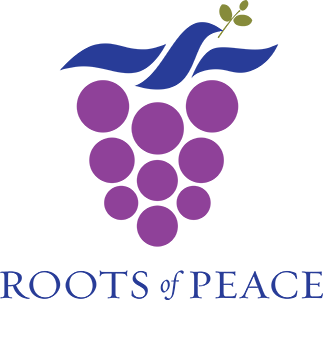Improving Rural Women’s Livelihoods in Badghis through Raisin Drying Technology
For female vineyard owners in Badghis, grapes are a major income source that provides many of their family’s basic needs. A vineyard provides fresh grapes that can be sold in local markets, but often these markets are too distant to reach. Without proper cooling and storage, the quality of fresh grapes diminishes rapidly. Post-harvest losses of fresh picked grapes can exceed 30-40% depending on harvesting methods, storage conditions, and weather. To avoid a complete loss, a viable option is to process fresh grapes into raisins. Most grape farmers do this, but traditional methods of raisin processing results in a low-quality raisin that brings a very low price.
Typically farmers dry grapes on the ground where they are prone to insects and diseases, and the processed raisins are often soiled with dust and unwanted debris. As an alternative, some farmers dry raisins on the rooftops, but birds and insects also destroy much of their potential harvest. The combination of these harmful features results in a low quality product that achieves a very minimal income for the family.
In 2020-2021, UNDP’s Community-Based Agriculture and Rural Development (CBARD) program, implemented by Roots of Peace, trained 400 male and 21 female vineyard owners in Balkh, Badghis and Farah provinces on an improved method of raisin processing. This improved method dries grapes on woven mats (rather than the ground) and uses sulfur dioxide that produces a clean, high quality golden raisin much preferred by consumers. The program also provides participants with complete raisin drying kits comprising plastic bags and buckets, straw mats for drying the raisin, and potassium carbonate, oleic acid and sulfur. Farmers who adopt this improved processing method discover that both raisin yieds and quality are dramatically higher, as are raisin prices at the market, resulting in higher income and improved livelihoods for vineyard owners.
In western Badghis Province’s Qadis district, Hanifa is from a small rural village called Takak. Hanifa is a small farmer who owns only two jeribs of vineyards, which is the primary income source to support her family of eight. Her husband suffered an impairment which resulted in her being the primary bread winner for the family. Some neighbors had advised her to replace her unprofitable vineyard with other crops to better provide food security, but she was reluctant to do so. Fortunately, she heard about the UNDP’s CBARD-ROP program and decided to attend an orientation and training on raisin processing.
UNDP’s CBARD-ROP production and marketing teams trained Hanifa on proper methods of grape harvesting and how to process fresh grapes into high quality raisins through improved methods using the raisin drying kits she had received after training. Today she knows how to harvest the grapes and dry them to produce high quality raisins. In the 2021 grape season, using her new skills and the raisin drying kits, Hanifa produced 800 kgs of quality raisins immediately following her training. As a result, she earned AFN 200,000 from selling her raisins a few days before Eid-Al-Fitr in May 2022. Eid is an important religious ritual in Afghan culture where people celebrate by consuming high-priced quality dried fruits and nuts, including raisins. Hanifa stated, “With UNDP’s CBARD program help, this year I not only met my family’s food needs by keeping my four children from starving, but our improved financial situation kept my husband from severe depression.”
Since then, Hanifa began earning extra income and doubled her raisin production using the skills she learned and the kits she received. She says “in the years when I was not registered as a CBARD vineyard owner, I used to dry a maximum of 400 kgs of raisins from 50 trellised grapevines and the quality and color of the raisins were very low. I could hardly sell it for AFN 40-60 per kg. After receiving the kits and CBARD training, I dried 800 kgs of raisins from the same 50 trellised grapevines that are high quality with a bright, clean, golden color. Now during EID I am able to sell my raisins for 3-4 times higher than normal prices” added Hanifa. Even during normal market conditions, Hanifa sells each kg of her raisins for AFN 180-200, which is a normal market price for high quality raisins. “I am extremely thankful to be able to properly care for my family from this new raisin drying activity,” concluded Hanifa.

